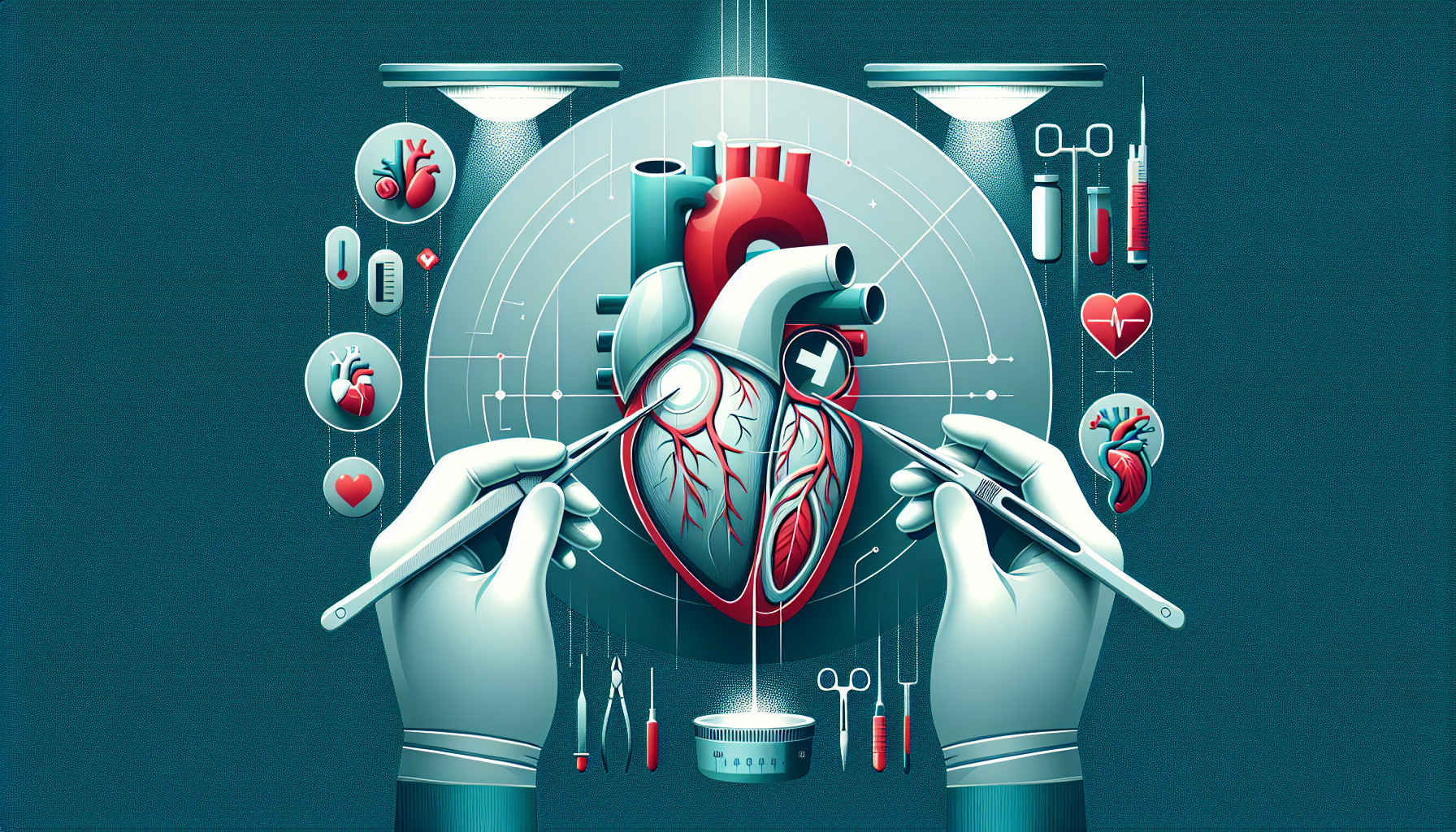Our Summary
This research paper explores a new method to replace parts of the heart in a single operation, instead of multiple ones. Specifically, the study looks at replacing the aortic root, aortic valve, and mitral valve - key components of the heart - all at once.
To test this, the researchers used 10 healthy pigs and created custom heart parts (called endografts) that could expand by themselves. They then performed the operation using two different approaches.
The results were promising: in 90% of the pigs, the replacements were successful. Eight of the pigs survived for more than 24 hours after the procedure, giving a success rate of 80%. Importantly, there was no significant increase in pressure in the different parts of the heart after the operation, meaning the heart was functioning well.
Additionally, no blockages in the coronary artery or other abnormalities were observed. There was also a very low rate of leaks around the new valves.
In simple terms, it seems possible to replace multiple parts of the heart at once, which could be a big step forward in heart surgery. The next step would be to test this in human trials.
FAQs
- What is the feasibility of endovascular replacement of ascending aorta, aortic root, and mitral valve in one procedure?
- What were the results of the study on endovascular replacement of ascending aorta, aortic root, and mitral valve in pigs?
- Were there any significant increases in pressure gradients or abnormalities following the operation in the study?
Doctor’s Tip
A doctor might tell a patient undergoing a valve replacement procedure to follow all post-operative care instructions carefully, including taking prescribed medications, attending follow-up appointments, and participating in cardiac rehabilitation programs to ensure a successful recovery.
Suitable For
Patients who are typically recommended valve replacement include those with severe aortic stenosis, aortic regurgitation, mitral stenosis, or mitral regurgitation. These patients may experience symptoms such as chest pain, shortness of breath, fatigue, dizziness, or heart palpitations. They may also have evidence of valve dysfunction on imaging studies such as echocardiograms or cardiac catheterizations. Patients with severe valve disease that is causing symptoms or complications may benefit from valve replacement to improve their quality of life and reduce the risk of further heart damage.
Timeline
Before valve replacement:
- Patient undergoes diagnostic tests such as echocardiogram, cardiac catheterization, and blood tests to determine the extent of valve disease.
- Patient may experience symptoms such as chest pain, shortness of breath, fatigue, and dizziness.
- Patient discusses treatment options with their healthcare provider and decides to undergo valve replacement surgery.
After valve replacement:
- Patient undergoes valve replacement surgery, which may be done through traditional open-heart surgery or minimally invasive techniques.
- Patient is monitored closely in the hospital post-surgery for any complications or issues.
- Patient may experience some pain, discomfort, and fatigue as they recover from surgery.
- Patient undergoes cardiac rehabilitation to help with recovery and regain strength.
- Patient may need to take medication to prevent blood clots and manage any underlying heart conditions.
- Patient follows up with their healthcare provider regularly to monitor their heart health and valve function.
What to Ask Your Doctor
- What are the potential risks and complications associated with valve replacement surgery?
- What type of valve replacement procedure is recommended for my specific condition (e.g. traditional open-heart surgery or minimally invasive surgery)?
- What is the expected recovery time and rehabilitation process following valve replacement surgery?
- How long can I expect the replacement valve to last before needing another procedure?
- What lifestyle changes or precautions should I take after valve replacement surgery?
- Will I need to take any medications following valve replacement surgery?
- How frequently will I need follow-up appointments and monitoring after valve replacement surgery?
- Are there any specific signs or symptoms I should watch for that may indicate a complication with the replacement valve?
- How will valve replacement surgery improve my overall heart health and quality of life?
- Are there any alternative treatment options to valve replacement that I should consider?
Reference
Authors: Zhao Y, Bao X, Li T, Wu M, Zeng Z, Ainiwaer A, Zhou J, Feng J, Feng R, Jing Z. Journal: J Cardiovasc Transl Res. 2021 Dec;14(6):1156-1164. doi: 10.1007/s12265-021-10129-5. Epub 2021 May 3. PMID: 33942237
